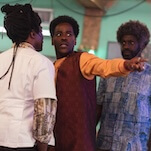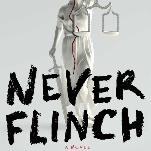In the late ’60s and ’70s, as feminist movements of various kinds surged through the United States and Europe, B-movie producers were right there with their cameras, eager to celebrate the liberated woman. But for obvious reasons, it’s rare for an exploitation movie to look beyond free love and T&A and note how women can be punished, brutally, for their sexuality. Made in 1978, deep into Fernando Di Leo’s career as one of Italy’s most prolific genre specialists, To Be Twenty is a tale of two very different—and both mostly tedious—films. The director’s cut runs 98 minutes, almost 90 of which are devoted to a typically sleazy, though eccentric and at times unconventional, piece of softcore about the misadventures of hot-to-trot freeloaders at a hippie commune in Rome. The last nine minutes, however, close with the most shocking sexual violence this side of Last House On The Left. The censored version, hastily prepared for Italian theaters after the original flopped, and later exported to the U.S., runs 85 minutes and lops off the ending entirely, among other changes.
The new two-disc DVD version of To Be Twenty includes both cuts, a 30-minute documentary about the film, and a liner-notes essay, a package that offers a lesson in what exploitation audiences expect, what they reject, and the hypocrisy of it all. Sadly, that lesson is far more compelling than most of the film, an amateurish, labored sex comedy that smothers its hothouse flowers long before a group of vicious reactionaries get their hands on them. Two former beauty queens, Gloria Guida and Lilli Carati, play strangers who bond under the oft-repeated credo, “We’re young, we’re beautiful, and we’re pissed off.” Fed up with life in the sticks, Guida and Carati hitchhike to Rome and make a beeline to a commune; once they arrive, they’re disappointed to find that the men are too high (and smelly) to give them pleasure, and the long-robed leader expects them to pay rent.
Strutting around in the city in tight short-shorts and open blouses, Guida and Carati seek pleasure first, and barring that, opportunities to taunt buttoned-down moralists of all stripes. Di Leo seems utterly bored by his own movie, which at one point has the women selling encyclopedias (and/or their bodies) door to door, and at another puts them in front of a camera crew, where they take part in an excruciating movie-within-a-movie that gives voice to the film’s mangled politics. Yet the decision to end the film so gruesomely is a radical gesture, one that suggests an exploitation filmmaker who’s fed up with gratifying his audience. Di Leo may not have been young and beautiful, but by the evidence here, he was plenty pissed off.
Key features: The aforementioned documentary is the highlight, but Nathaniel Thompson’s liner notes give excellent context, and the two-disc set also includes the original screenplay.







































